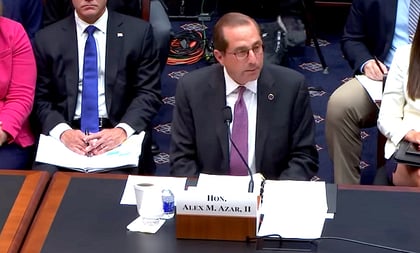The Trump administration wants to make it easier for drugmakers and insurance companies to make pricing deals based on how well a medicine works, a change that both sides say could help lead to a more efficient health care system.
The Food and Drug Administration on Tuesday released the final version of a draft detailing how pharmaceutical companies can have conversations with payers about so-called value-based agreements. Under such arrangements, the amount an insurer covers is based on a specific outcome — such as keeping patients from being hospitalized — instead of a flat fee.
(Related: 3 New Reasons for Hope About Health Benefits Costs)
Restrictions on such conversations have made drugmakers nervous about breaking FDA rules. Current regulations limit what they’re able to discuss prior to a drug’s approval, and potential use of a medicine once it’s on the market that isn’t included in the label. The rules also apply to medical-device manufacturers.
The release of the guidelines come as Health and Human Services Secretary Alex Azar is set to testify Tuesday before a Senate committee about the blueprint President Donald Trump released last month to bring down drug prices. One of the suggestions in the document, “American Patients First,” includes testing value-based arrangements in the Medicare program, which provides health care for the elderly and disabled.
Value Deals









 June 12, 2018 at 07:50 PM
June 12, 2018 at 07:50 PM











